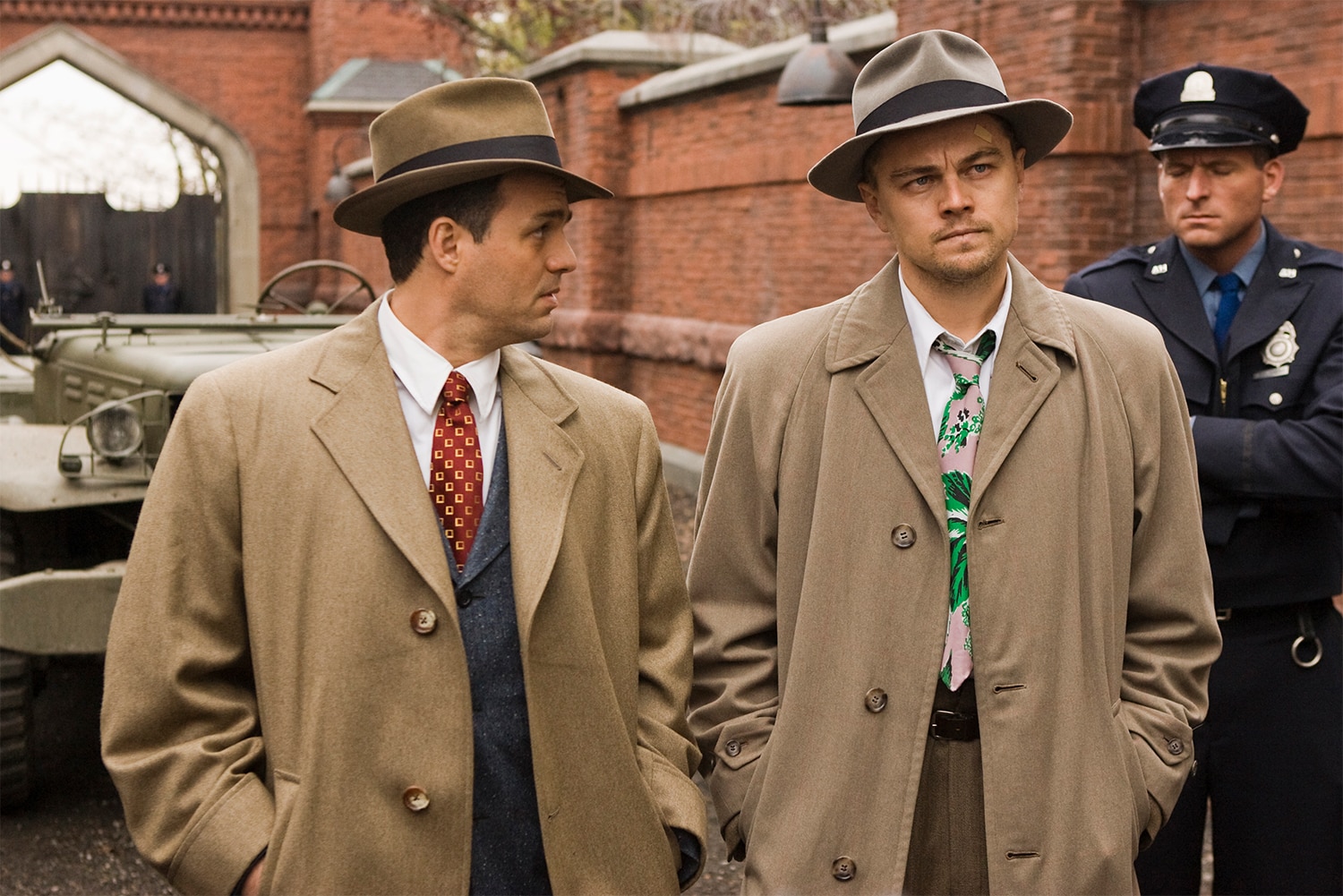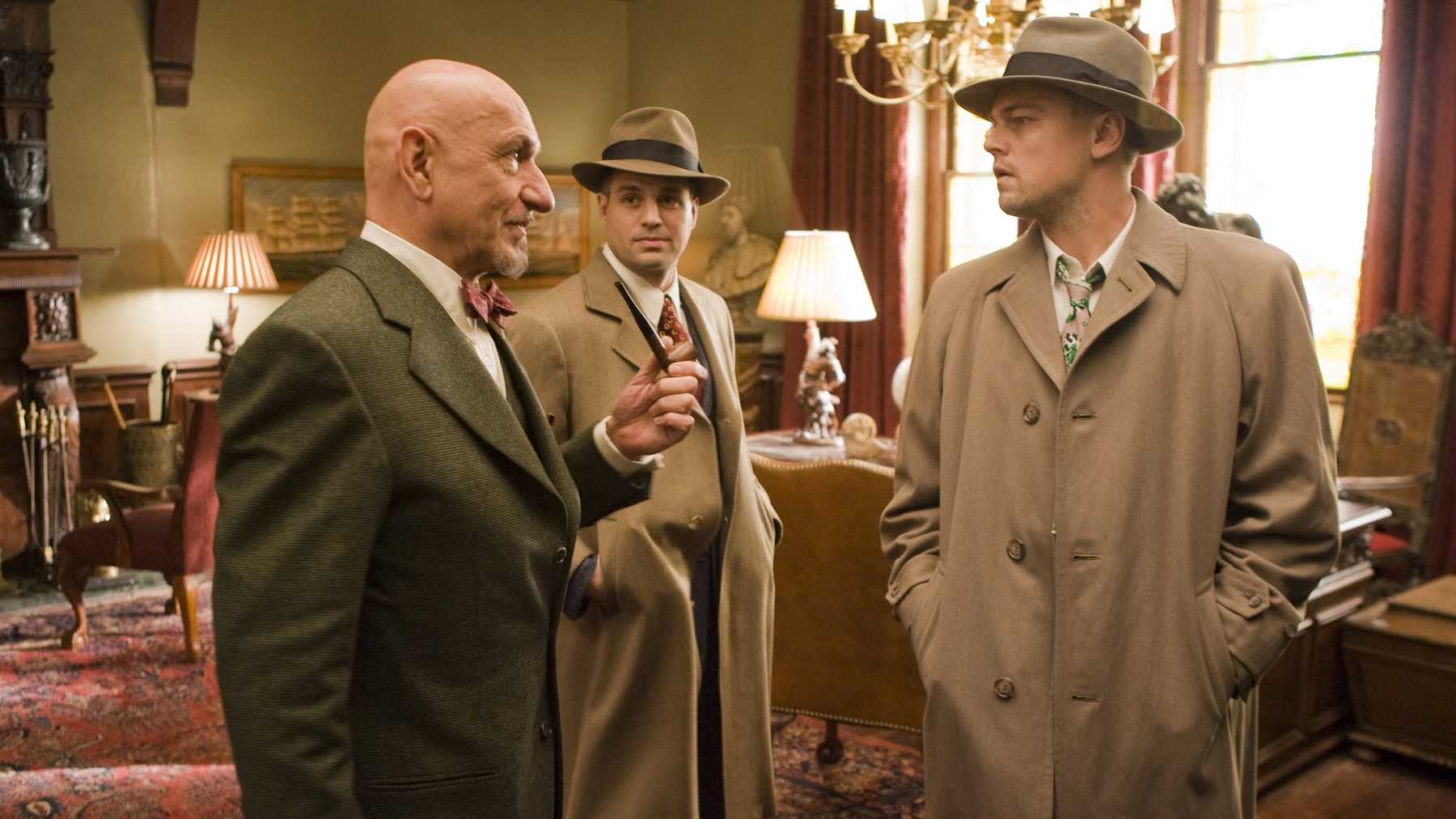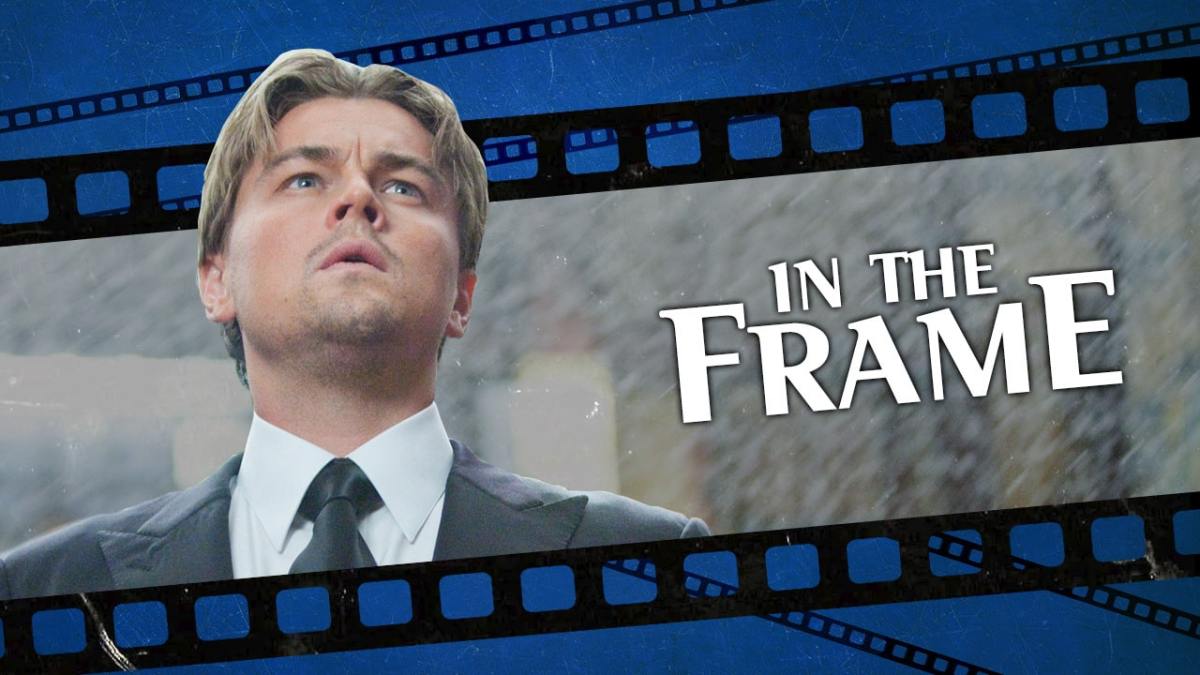Note: This article contains spoilers for both Shutter Island and Inception.
Released within five months of one another in 2010, Shutter Island and Inception feature two of Leonardo DiCaprio’s best performances. They also foreshadow the decade that would follow.
The high quality of these performances isn’t surprising, as the two films lean heavily on what makes DiCaprio such a compelling screen presence. Despite (or perhaps because of) his origins as a teen heartthrob, much of DiCaprio’s adult career is defined by a palpable sense of desperation and insecurity — a frantic energy and commitment built around a desire to prove himself. Just last year, this was at the heart of DiCaprio’s performance as Rick Dalton in Once Upon a Time… in Hollywood.
As with a lot of movie star personas, it is hard to draw a line between the packaged onscreen performance and the media portrayal of the actor behind it. The defining arc of DiCaprio’s career was his pursuit of a Best Actor Oscar, to the point that it became a recurring joke that he might accidentally kill himself trying to win one. This narrative even filters down into the tabloid portraits of DiCaprio — the coverage of the women he dates and his obsession with beach volleyball.
As such, it makes sense that the two performances at the heart of Shutter Island and Inception are driven by that same frantic desperation. Both characters are trapped in illusion and haunted by guilt, struggling to determine the difference between reality and fantasy. These are men shaped by trauma and desperate to escape. Indeed, the biggest contrast between the two films is that Shutter Island traps its protagonist on an island while Inception places its lead on the run.

In Shutter Island, DiCaprio is introduced as Federal Marshal Teddy Daniels. He has been dispatched to the eponymous island to investigate the mysterious disappearance of a patient. However, he is also convinced that there is an elaborate conspiracy at play, involving Nazi scientists, the House Un-American Activities Committee, and the sorts of experiments associated with MK-ULTRA. However, as Teddy spends more time on the island, he finds his sanity beginning to slip.
Eventually, it is revealed that Teddy is really Andrew Laeddis. He invented the Daniels persona — and the conspiracy theories — as a set of “very impressive defense mechanisms.” They are designed to keep him from confronting his own guilt. They allow him to escape the trauma of witnessing the horrors of Dachau firsthand, and they offer an opportunity to avoid responsibility for his murder of his wife Dolores (Michelle Williams) after she killed their three children.
Much of Shutter Island is eventually revealed as an elaborate effort by Doctors John Cawley (Ben Kingsley) and Lester Sheehan (Mark Ruffalo) to force Andrew to confront reality and acknowledge what really happened. Throughout the film, Andrew has been haunted by visions of his wife and echoes of the truth, but he manages to force them into an elaborate and fantastical narrative that prevents him from acknowledging reality.
Inception begins in a similar place. Dominick Cobb is similarly haunted by feelings of guilt over the death of his wife, Mal (Marion Cotillard). Cobb is an international fugitive accused of his wife’s murder — what was in reality a stage-managed suicide. Like Dolores, Mal was psychologically unstable. While Andrew’s alcoholism and trauma blinded him to Dolores’ degeneration, Cobb is more directly implicated in his wife’s decline: He manipulated her dreams to distort her sense of reality.

Much like Andrew spends most of Shutter Island haunted by his memories of Dolores, Cobb spends most of Inception stalked by a psychological projection of Mal. Much like Dolores tries to prevent Andrew from confronting the reality of what happened to his family, Mal tries to convince Cobb that he is living inside a dream. As she points out, the shadowy agents who chase Cobb through Mombasa look a lot like the subconscious projections a dreamer employs as self-defense.
Desperate to find a way back to his children, Cobb takes on a high-risk assignment from Saito (Ken Watanabe), which involves healing a parent-child rift between Maurice (Pete Postlethwaite) and Robert Fischer (Cillian Murphy). Bilge Ebiri has argued the real “inception” at the heart of Inception is the effort to convince Cobb to return home. Like Cawley’s “radical, cutting-edge role-play” in Shutter Island, the Fischer mission is a vehicle for Cobb himself to experience “catharsis.”
Shutter Island and Inception are both character-driven stories focused on Andrew and Cobb, and they succeed in large part due to DiCaprio’s powerhouse performances. However, both stories contextualize these personal dramas as part of a broader commentary on the fungible nature of reality and the tenuous grasp that the human brain has on it. In both Shutter Island and Inception, Andrew and Cobb are extreme cases of a much wider anxiety.
In Shutter Island, Andrew’s repressed memories of Dolores’ murder of his children are juxtaposed with his nightmares about the liberation of Dachau. It isn’t merely the horror of the Holocaust, but the explosion of technological and industrial progress from the Second World War. This is a dramatic political and cultural shift that can understandably feel like collective insanity, a feeling that Shutter Island ties to the birth of “the American Century.”

Discussing the difficulty that Europe has had coming to terms with the Holocaust, historian Robert O. Paxton argued that “total recall leads to madness.” This is a recurring motif in Shutter Island, both for Andrew and arguably for the other inhabitants of the island. As Andrew keeps pressing deeper and deeper into the heart of the mystery, visions of Dolores implore him to stop. “Get out of here, Teddy,” she begs. “This place is gonna be the end of you.”
Maybe the world itself has gone mad. When Andrew suggests that Bridget Kearns (Robin Bartlett) seems sane and could probably get off the island, she replies, “What would I do if I did? I don’t know the world anymore.” She is not the only one. “Listen, I don’t want to leave here,” Billings (Joseph McKenna) warns Andrew, explaining that the island’s inhabitants “hear things here about the outside world,” including the development of the hydrogen bomb.
Inception is not quite as overt. Instead, Inception seems more concerned with the idea that dreams can be manipulated by outside influences and that nostalgia exerts a powerful pull that distorts time and reality. Cobb and Saito end up trapped in “limbo,” the “unreconstructed dream space” that mirrors the fantasy world that Cobb built with Mal. With its abandoned and decaying buildings and its ocean-front view, it is not radically different from the institution in Shutter Island.

With their shared emphasis on the precarious nature of reality, both Inception and Shutter Island prefigure the decade that would follow. The next 10 years would be shaped by “echo chambers” and “alternative facts,” with a President of the United States who came to political prominence as a reality television star pushing conspiracy theories. Journalists have talked about these past few years as the “post-truth” era, while even more radical theories of reality negation have taken root.
It’s easy to compare Shutter Island and Inception to earlier movies with similar themes, films like The Matrix or The Truman Show at the turn of the millennium. These were also films about characters trying to distinguish between reality and fantasy. However, films like The Matrix and The Truman Show ultimately argue that their protagonists will choose reality — that when confronted with a comforting lie or a hard truth, people will embrace the latter over the former.
Shutter Island and Inception are decidedly more ambivalent. At the end of Shutter Island, after what appears to be a breakthrough with Cawley, Andrew slips back into the Teddy persona. This forces the institution to lobotomize him. The film’s closing moments imply that this is a ruse on Andrew’s part. “You know, this place makes me wonder,” he asks Sheehan, “which would be worse — to live as a monster or to die as a good man?” He chooses to die as Teddy rather than live as Andrew.

Similarly, the end of Inception finds Cobb returning home to his children. He begins to spin his totem, to determine whether this is reality or fantasy. However, he ultimately decides it doesn’t matter. He walks away from the table before seeing whether the spinning top tips over. Whether this is reality or fantasy, Cobb has decided that this is the world in which he wants to live. He has chosen what he wants to be his reality, rather than objectively determining which is true.
It has been argued that Leonardo DiCaprio is “the last movie star.” This might be a slight exaggeration. However, with his work in Shutter Island and Inception at the start of the second decade of the 21st century, DiCaprio demonstrated the power of a movie star to speak to the zeitgeist. In his twin performances as Andrew Laeddis and Dominick Cobb, DiCaprio embodied the spirit of an era that would manifest itself over the ensuing decade.
DiCaprio’s work is layered with anxieties, insecurities, and ambiguities. His characters often seem incredibly tightly wound and yet also capable of unraveling in an instant. In Shutter Island and Inception, he used that energy to craft two powerhouse lead performances that resonate beautifully in the post-truth era. These two performances arrived in the first year of the decade — but loom large more than 10 years later.






Published: Aug 3, 2020 11:00 am